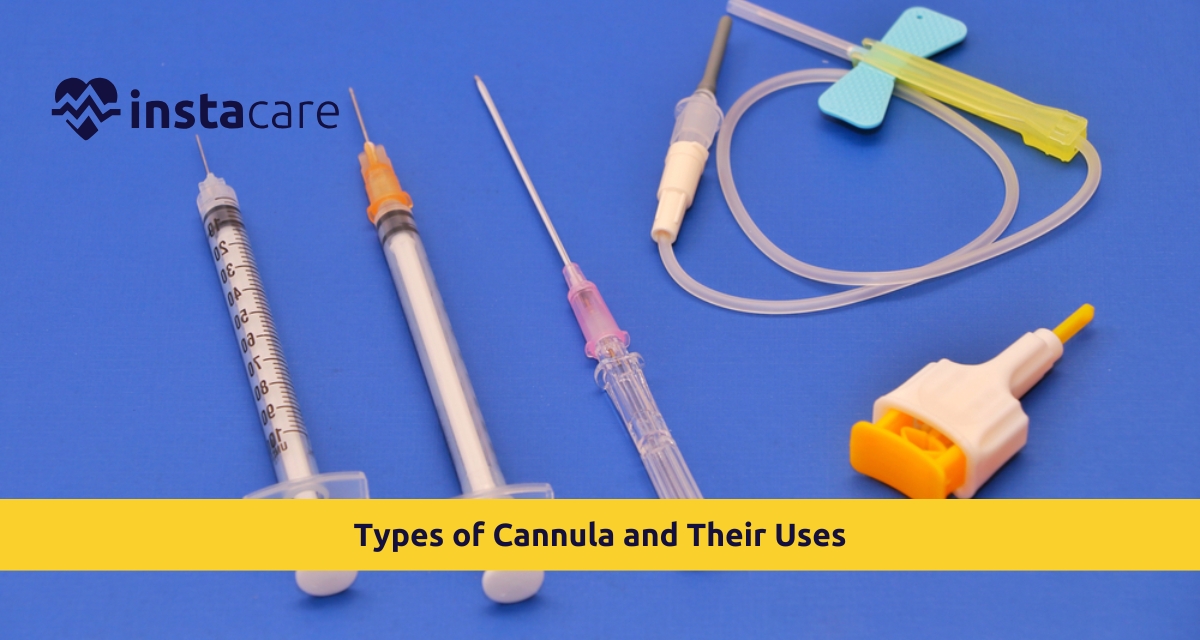A cannula is a very thin hollow tube that can be inserted into the body to introduce or withdraw gases, fluids, or medications. Because of this, cannulas are quite often used for cosmetic and medical procedures; they are one of the most prominent medical devices. Actually, many such kinds can be used to consider different needs, that is, to meet the different needs of patients.
Types of Cannula You Should Know
There are several different Medical cannula types; each with its own application. Some major types of cannula include the following:
Intravenous (IV) Cannula
An intravenous (IV) cannula is mostly an infusion device for administering medicines, fluids, or blood into the patient's bloodstream from outside. It is no less an important emergency and hospital apparatus for urgent care.
Oxygen Cannula
An oxygen cannula is attached to the system to deliver additional oxygen to patients with difficulty breathing.
Nasal Cannula
A nasal cannula mainly applies to those patients with relatively lower oxygen flow requirements. This application has narrow tubing going into the nostrils and is mostly outpatient activity given to patients.
Liposuction Cannula
The Cannula for liposuction is a specialized device used in cosmetic surgery procedures to remove fat tissue from specific body parts. The cannulas considered are typically larger than other types, and their size facilitates faster tissue removal.
Medical Cannulas
There is a category of medical cannulae: the blood or pure drain related, like chest tubes for drainage, those for use in specific procedures, such as dialysis, and so on. Each has a specific contribution towards an expressly defined cause.
Uses of Cannulas
Cannulas are observed to have a variety of Uses of a cannula in different medical settings. Some of the typical applications of cannulas include:
- Fluid administration: Rapid intravenous access for medication and fluid administration.
- Oxygen administration: Narrowing a cannula with an oxygen supply system aids in delivering supplemental oxygen to individuals with difficulty breathing.
- Removal of vacuum: Some plastic tubes suck excessive fat out of the body in Cannula in cosmetic procedures.
- Drainage: Various kinds of cannulas are used for drainage purposes. In the same instance as in chest tubes, some bodily fluids can be removed.
Read More: A Guide To Different Acne Types
Technique of Cannulation Insertion
The cannula insertion procedure is one of the prime activities in achieving the treatment result; the entire process is described below.
- Preparation: The provider prepares the site for insertion, cleanses it with disinfectant, and assembles all necessary tools.
- Insertion: Insert the cannula gently via a suitable vein or body cavity.
- Securing: This secures the cannula in place so that neither the How to insert a cannula can be moved nor will it take its due course of action.
- Monitoring: Proper post-insertion monitoring is conducted at the site with concern for any signs of complication.
Cannula gauge sizes are the indication of the diameter of the cannula and would contain different varieties according to the intended purpose for which it is going to be used. In the general sense, however, in fact, bigger gauges are really meant for fluid resuscitation and transfusion; and for injection or less invasive procedures, the gauge is smaller. The right choice in gauge size is necessary for effective treatment.
Cannula and Catheter
A significant difference between a Cannula and a catheter stems from the fact that they are tubes inserted into a human body but not exclusively for the same passage. While a cannula is for the passage of fluids or gases into the body, catheters can drain fluids from the body, sometimes urine. They both are very specific to the needs of a certain patient.
Complications of Cannulation
Cannulas are complex, yet they are crucial primary medical instruments. However, there are some Complications of cannula use that health personnel recognize while using the cannula. The following are just a few of the complications:
- Infection: But possible infection due to insertion of the site, after which it can be called "not caring".
- Phlebitis: The inflammation on the walls of a vein will cause pain and swelling.
- Thrombosis: Thrombosis is when blood clots near the cannula, causing complications.
Cannulae for Cosmetic Procedures
Cannulas can also be found in very different fields for carrying out cosmetic operations, such as
liposuction and filler injections. The use of a cannula in the procedure would not inflict as much damage to the surrounding tissue, leading to faster recovery and results.
Most Suitable Cannula for IV Therapy
The best cannula for IV therapy most suited for IV injection depends on the evaluation of the patient and the treatment presumed necessary. In an emergency, a larger gauge cannula may usually be required for rapid fluid resuscitation, but again, emergency needs might be satisfied very well with a smaller gauge cannula. As such, an appropriate cannula becomes 100 percent pertinent to its use in giving very efficient therapy.
Cannulation Maintenance and Care
The care and maintenance of cannulas should normally preclude complications and protect the patients. It is typically effective in conducting infection checks of professionals through the insertion site periodically, altering dressing as required, and keeping the cannula "patent." Another thing, but very vital, would be telling the patient about home care methods for the cannula.
Conclusion
In conclusion, cannulae are today some of the most versatile instruments in medicine. Fluid administering, and application in the cosmetic field: all of them should be known, along with their use and maintenance. This improves the treatment outcome in terms of patient safety. This means that the right type will be chosen for certain medical requirements at any time to ensure the effectiveness and safety of treating a patient.
Please book an appointment with the
best General Physician in Lahore, Karachi, Islamabad, and all major cities of Pakistan through
InstaCare, or call our helpline at 03171777509 to find a verified doctor for your disease.


